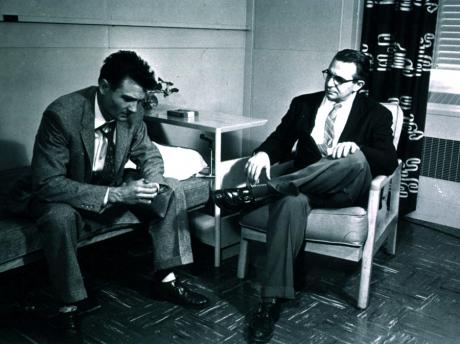Social Determinants of the Mental Health Crisis
The World Health Organization defines mental health as “a state of well-being in which every individual realizes his or her own potential, can cope with the normal stresses of life, can work productively and fruitfully, and is able to make a contribution to her or his community.”
Primary health care has an important role in addressing mental health needs and promoting mental health. As health care providers, hospitals are often the first point of contact between people and health care services, helping to achieve early identification of disorders and prevention of future episodes.
The social determinants of health shape and profoundly influence both mental and physical health. Furthermore, the relationship between physical and mental health indicates that poor physical health can cause mental disorders, and vice versa. Reducing inequalities in mental health cannot be achieved without reducing inequalities in physical health.
A person’s mental health and many common mental disorders are shaped by one’s social, economic and physical environments. Risk factors for many common mental disorders are heavily associated with social inequalities. Therefore it is vital that actions be taken to improve the conditions of everyday life, beginning before birth and through to older age.
Strategies that are likely to have a significant impact on reducing mental health inequalities include: the alleviation of poverty, reduction of inequalities and discrimination, prevention of violent conflict, promoting access to employment, health care, housing and education. With particular emphasis given to policies related to: maternal health, early childhood development and social welfare for the unemployed.
Recent numbers from the National Alliance on Mental Illness approximate that one in five adults in the U.S. experience mental illness in a given year and one in 25 experiences a serious mental illness that interferes with a major life activity. Approximately one in five youth will experience a severe mental disorder at some point in their life. Of the more than 20 million adults in the U.S. who experienced a substance use disorder, more than 10 million adults had a co-occurring mental illness. A staggering 16 million adults in the U.S. had at least one major depressive episode in the past year.
Mental illness sends nearly 5.5 million people to emergency departments each year, accounting for four percent of all visits according to the Federal Agency for Health Care Research and Quality. Many of the mentally ill are uninsured leaving hospitals largely uncompensated. Patients suffering from mental illness cycle through emergency departments, jails and homeless shelters at an alarming rate as providers seek resources. While, inpatient psychiatric beds for patients who need intense care for short periods has fallen more than 32 percent since 1995.
Mood disorders, including major depression, dysthymic disorder and bipolar disorder, are the third most common cause of hospitalization in the US for both youth and young adults. Individuals living with mental illness also face an increased risk of having chronic medical conditions.
An unacceptable number of vulnerable people became homeless when governments closed mental health institutions and failed to provide sufficient community care. Today, our jails and hospitals are under great pressure because they have become the frontline during mental health crisis. As more people leave state institutions, return from overseas combat and exit jail we can expect our hospitals to remain at the forefront of emergency treatment options.
Mental illness has reached a tipping point. Reductions in county funded programs, increases in length of stay for the mentally ill in hospital emergency departments, increases in emergency psychiatric consults, the surge in homelessness and reduced resources for those experiencing homelessness are having a debilitating impact on hospitals that care for patients who have nowhere else to turn.
No one vehicle can solve the societal issue of mental illness. The mental health needs of our communities far outweigh our resources. We must think creatively and make mental health our top funding priority.
We will discuss several possible solutions to aid in this crisis in the weeks that follow.




